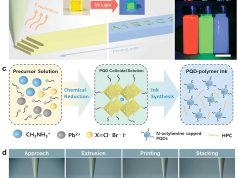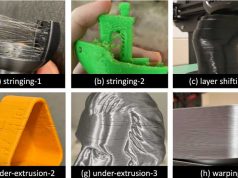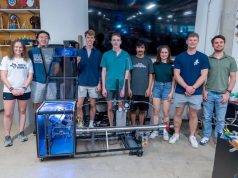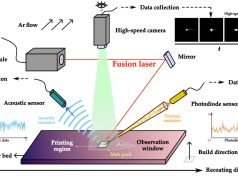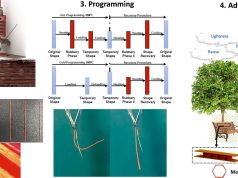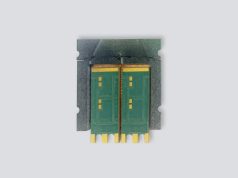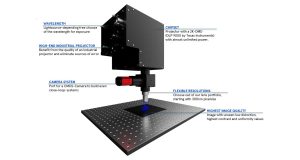Researchers at Queen’s University Belfast have developed personalized “smart” implants from 4D printing for the treatment of breast cancer. This is the first time 4D printing has been used to create breast cancer implants.
4D printing enables the production of dynamic 3D objects that can change their morphology and/or properties in response to external stimuli, such as temperature or pH. These changes are predictable and programmable. The implants were made from stimuli-responsive materials, also called “smart materials.”
The research team from the School of Pharmacy at Queen’s University Belfast was led by Professor Dimitrios Lamprou and collaborated with experts such as Dr. Niamh Buckley and international colleagues. They used a 4D bioprinter containing doxorubicin, a chemotherapy drug. This allowed the implants not only to adjust their size, but also to release targeted drugs in the affected area.
Commenting on the importance of this innovative research, Professor Dimitrios Lamprou, lead on the project and Chair of Biofabrication and Advanced Manufacturing from the School of Pharmacy at Queen’s University Belfast, said: “This innovative idea started after discussions with doctors and patients, explaining us the challenges in operation, management and everyday life. By making, for first time, these 4D printed implants, the breast cavity after surgery can be covered with an implant that mimics the elasticity of the breast and provide better management of the breast cancer by releasing a chemotherapeutic drug that will “keep away” the return of the tumour.”
Dr Niamh Buckley, Reader from the School of Pharmacy and responsible for the in vitro evaluation of these novel implants, said: “Chemotherapy plays a crucial role in the treatment of breast cancer, but it is associated with harsh side effects. The use of technology such as this, which allows a concentrated delivery of the drug just to where it is needed, can help make treatment more effective and kinder.”
Breast cancer is the second most common cancer worldwide, with more than 2.3 million new cases each year. This innovative research offers a novel way to better manage the disease. The personalized implants could improve aesthetic outcomes and boost patient*s confidence. Dr. Niamh Buckley emphasized that the technology allows for concentrated drug delivery, making treatment more effective and tolerable.
These research findings, published in the journal Science Direct, offer an innovative way to improve breast cancer treatment. They demonstrate the potential of 4D printing technologies in the medical sector, particularly in the treatment of cancer. The ability to resize and deliver drugs represents a significant improvement to current treatment methods and could lead to wider application in personalized medicine in the future.
Subscribe to our Newsletter
3DPresso is a weekly newsletter that links to the most exciting global stories from the 3D printing and additive manufacturing industry.




